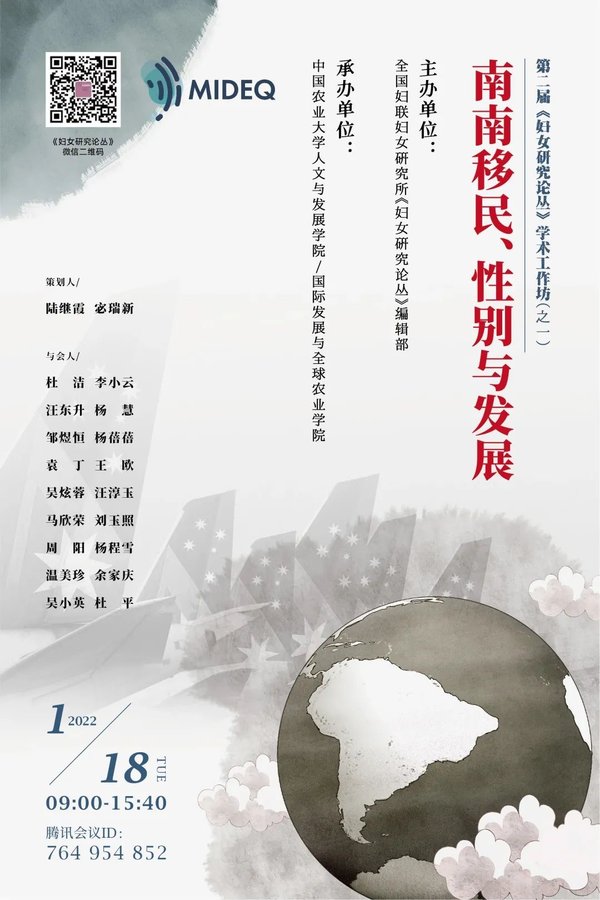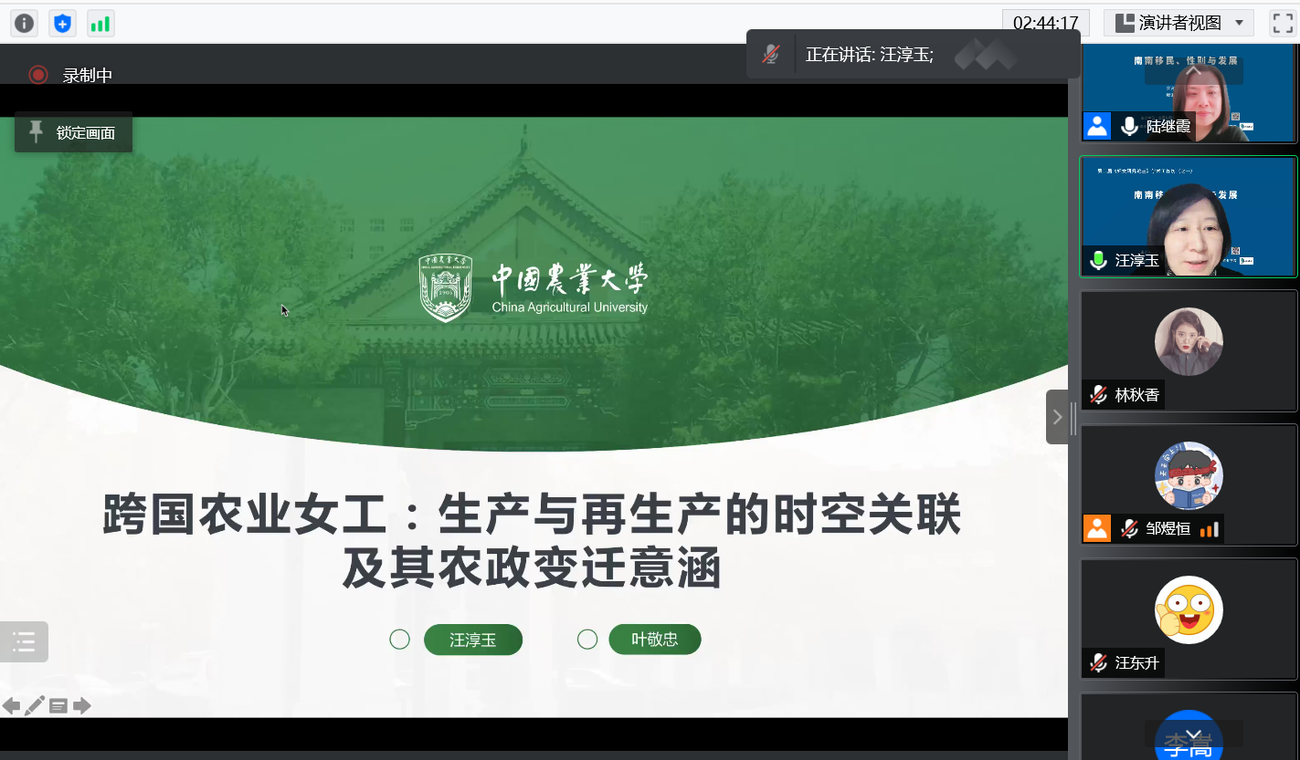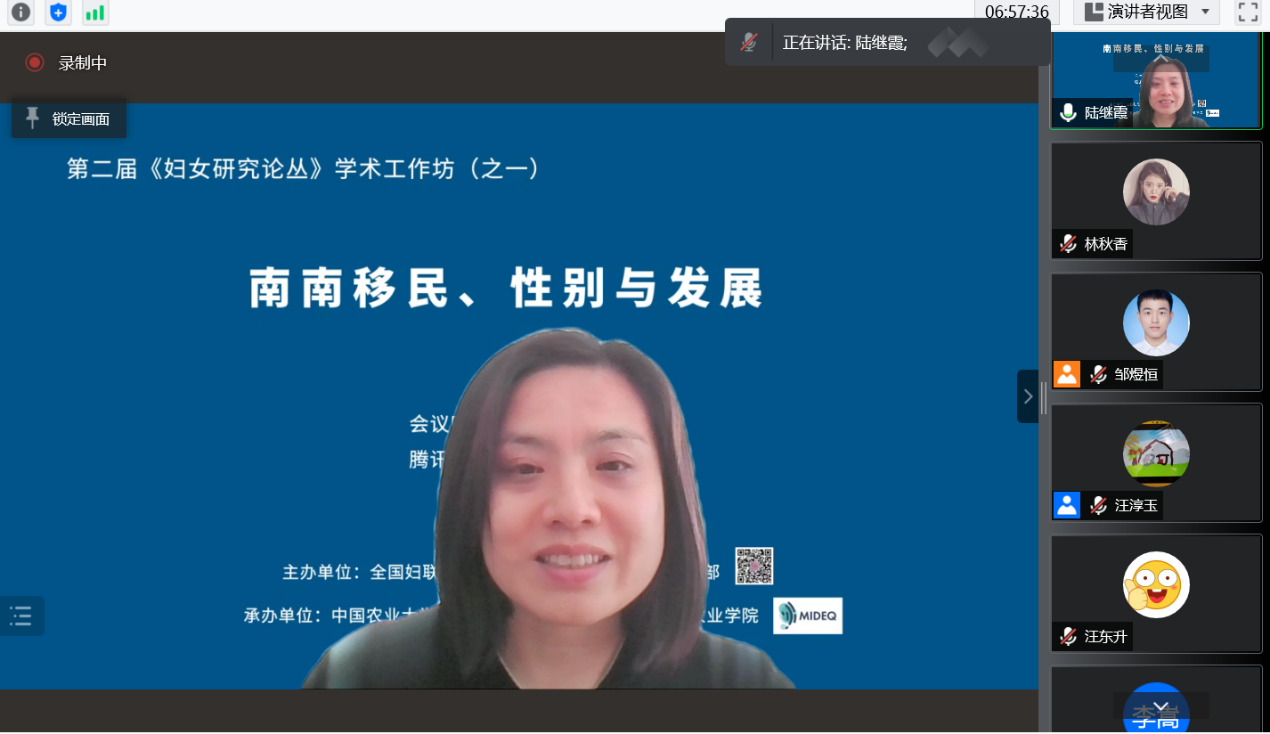
In recent years, migration between countries of the Global South has grown rapidly, but practical discussions and theoretical explorations around the topic of gender and development in south-south migration are still relatively lacking. In response, the MIDEQ China team and the editorial office of “Journal of Chinese Women's Studies” jointly held an online workshop on “South-South Migration, Gender and Development” on 18 January 2022. The Journal of Chinese Women's Studies is the top journal for gender studies in China and has a strong interest in the topic of gender and development in international migration. Eleven scholars from China Agricultural University, Nankai University, Sun Yat-sen University, Fudan University, Shanghai University, Huazhong Normal University, Women's Studies Institute of China and Institute of Sociology, Chinese Academy of Social Sciences were invited to attend the workshop and make speeches, and more than 100 viewers participated in the workshop online.
The conference invited Jie Du, Director of Women's Studies Institute of China and Editor-in-Chief of the Journal of Chinese Women's Studies, and Xiaoyun Li, Chair Professor of Liberal Arts at China Agricultural University and Honorary Dean of the College of International Development and Global Agriculture, to deliver opening speeches. Jie Du pointed out that as China has been increasingly involved in international migration, migration has become an important issue for development in China and globally. Among migrants, women's experiences and their role in migration have attracted more attention because of their characteristics. Understanding migrant women and their experiences will serve as an important resource for the future promotion of women's development. In his speech, Xiaoyun Li stressed that research on international migration from a gender perspective has been conducted under the theoretical frameworks of two dimensions, liberalism and Marxism, and that today we need to reconsider these theoretical frameworks. Although south-south migration still has some of the characteristics of south-north migration, it would be very challenging to continue to use these concepts and theories to explain south-south migration.


The workshop was divided into three topics. The first section focused on gender dynamics and heterogeneity in migration. Participating scholars discussed the source of heterogeneity within the migrants and its relationship with gender and put forward suggestions to improve gender equality. The theme of the second section was skill differences and subjective experiences for women in migration. This part mainly focused on the migration decision-making made by migrant women with different skill levels, as well as the shaping of their identity by macro-economic and policy factors. The theme of the third part was transnational marriage and intimate relationship. This part was mainly about the transnational marriage between China and Southeast Asian countries, as well as between China and African countries. The focus was on local networks, state power, livelihood strategies and women's rights in cross-border marriages, as well as the challenges that these factors pose to intimate relationships.
At the end of the workshop, Professor Jixia Lu gave a concluding speech on the workshop. She pointed out that until a more appropriate concept is found, we will use the term South-South migration to help us understand this new international migration trend in the context of globalisation. Research on gender and development in south-south migration is ongoing and there are many pioneering and interdisciplinary areas of research that require more empirical research and theoretical construction.